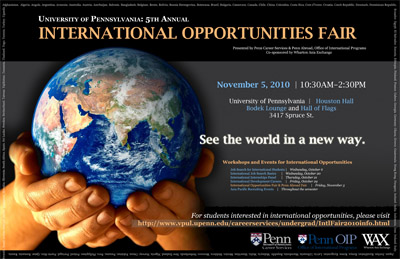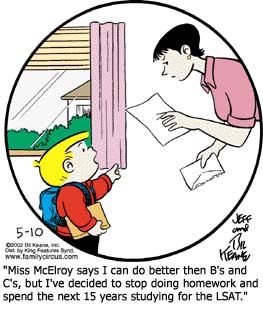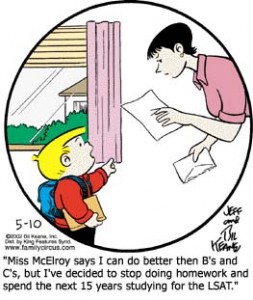By Erica Marks
It’s me again, the office Teach for America (TFA) alum. And I’ve got more advice to share from my experience. To fulfill my duty as good alumna who continues to work toward our mission of educational equity, I conduct phone interviews. Yes, the awkward, first round phone screen – that’s me on the other end (well not necessarily in your case, there are many us).
Phone interviews have some inherent challenges, namely, the loss of nonverbal cues. Yikes. I can’t see your smiling face or notice your body language. All I have is your voice and my rubric to fill out based on it. As the next round of phone interviews begin and recruiting continues all around campus, I am offering some words of wisdom.
Choose a quiet place. Nothing is worse than the interviewer over hearing your roommate play Wii bowling or your mom calling down the hall to see if your underwear needs washed. Find a quiet place and notify everyone in advance. I even recommend a good ol’ “do not disturb” sign on the door.
Check your reception. Do you have all your bars? Only one? This is a huge problem that is easily preventable. Choose a location that is not only quiet, but that ensures you’ll both be able to clearly hear each other (public phone booths are not recommended).
Turn off call-waiting. The beeps in your ear can be distracting and frustrating. Before your call time, disable the function. If you’re receiving the call, use the options in your phone to turn it off. If you are the caller, you can type *70 into your phone to temporarily turn it off.
Take pre-interview precautions. Getting up and moving around during the interview can be distracting for you and cause noise on the other end. Before the interview starts, set yourself up for success. Use the bathroom. Get a glass of water; you will be talking your face off, potentially resulting in a dry throat. And set up any materials you may need.
Get your documents ready. Having your resume on hand is a great resource. Remember, we can’t see you, so you can refer back to it as necessary. For any interview you should practice answering questions and for this type of interview, you can have those answers in front of you! Warning: you will not have time to read a paragraph, but you can skim a list.
Interruptions happen. The important thing to remember is not to sweat them. Try not to giggle uncontrollably or apologize profusely. Try to prevent them by listening carefully, annunciating your words and not rambling on and on. The last one is tricky – it’s hard to gauge if you’ve gone too far because you can’t see the interviewers reaction.
You may not need the dry cleaners, but you will need clean clothes. Most people think that phone interviews are great because you get to sit around in your pajamas. The truth is that dressing up a little can help. When dressed for success, people tend to act and speak more professionally.
Happy Interviewing!
P.S. some wonderful colleague’s of mine wrote on a blog on this topic a while ago, you can check it out in the archives: http://ulife.vpul.upenn.edu/careerservices/blog/?m=200911












